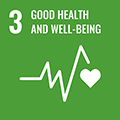A LANDMARK STUDY SHAPING YOUTH JUSTICE
Researchers at Queen’s including Dr. Colm Walsh are transforming how society understands and responds to youth offending and childhood trauma. His work is not only reshaping youth justice policies but also addressing the deep-rooted effects of Adverse Childhood Experiences (ACEs) in Northern Ireland. Through innovative, data-driven approaches, Dr. Walsh’s research highlights the importance of rehabilitation, trauma-informed interventions, and long-term social impact. His recent ACEs study provides unprecedented insight into the ongoing effects of childhood trauma in post-conflict Northern Ireland, ensuring that evidence guides both policy and practice.
Research Challenge
A PERSISTENT CYCLE OF YOUTH CRIME
Serious youth offending, particularly violent offending, remains a significant societal issue, with traditional criminal justice approaches often failing to break the cycle of reoffending. Many young people caught in the justice system face complex social challenges, including poverty, trauma, and educational disengagement. There is a critical need for evidence-based interventions that support rehabilitation rather than perpetuate punitive cycles.
Our Approach
A DATA-DRIVEN APPROACH TO PREVENTION
Dr. Colm Walsh, based at Queen’s University Belfast, leads pioneering research into youth justice, violence and criminal exploitation, focusing on innovative, data-driven interventions designed to reduce reoffending rates. His work integrates criminology, psychology, and public policy to develop and evaluate targeted programmes for at-risk youth. By collaborating with policymakers, community organisations, and justice agencies, Dr. Walsh’s research bridges the gap between academic insights and real-world impact.
His research extends to understanding the impact of Adverse Childhood Experiences (ACEs) in Northern Ireland. A landmark study led by Dr. Walsh revealed that 60% of the adult population in Northern Ireland reported at least one traumatic childhood event, with nearly one in five experiencing four or more. The study, commissioned by the Executive Programme on Paramilitarism and Organised Crime, highlighted how childhood trauma is linked to poorer educational outcomes, chronic health conditions, substance use, and higher involvement in the justice system. These findings emphasize the importance of trauma-informed approaches in policy and practice.
“Youth offending is not just a criminal justice issue—it’s a societal challenge that requires holistic, evidence-based solutions. By addressing the root causes of crime and supporting young people through targeted interventions, we can create pathways away from offending and towards positive futures.”
- Dr Colm Walsh
What impact did it make?
CHANGING LIVES AND INFLUENCING POLICY
Dr. Walsh’s research has led to the development and implementation of youth diversion and support initiatives that have significantly reduced reoffending rates. His findings have directly influenced criminal justice policies, leading to more effective, positive youth development interventions. Notably, his work has informed strategies at both local and national levels, contributing to a shift in how youth crime is understood and addressed. His research has also shaped training programmes for frontline practitioners working with children and young people involved in the justice system, ensuring that evidence-based methods are embedded in practice.
The landmark ACEs study further underscores the need for comprehensive, cross-sector responses to childhood trauma. As Justice Minister Naomi Long noted, the study’s findings are "both striking and sobering," providing crucial evidence to inform policy across the Executive. Programme Director Adele Brown highlighted the importance of understanding and addressing trauma, advocating for a society where intergenerational and domestic trauma does not hold young people back.
Our impact
Impact related to the UN Sustainable Development Goals
Learn more about Queen’s University’s commitment to nurturing a culture of sustainability and achieving the Sustainable Development Goals (SDGs) through research and education.











